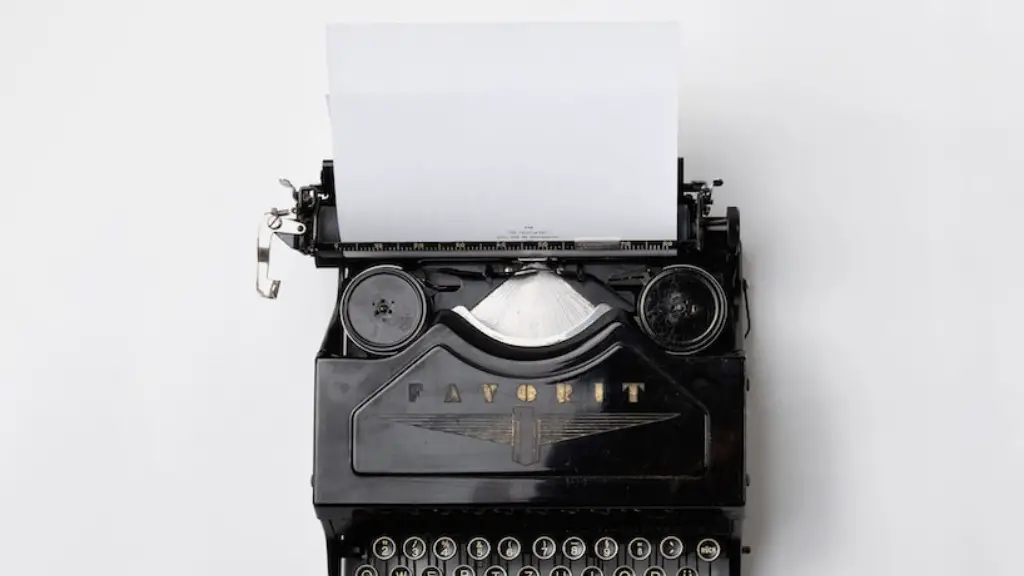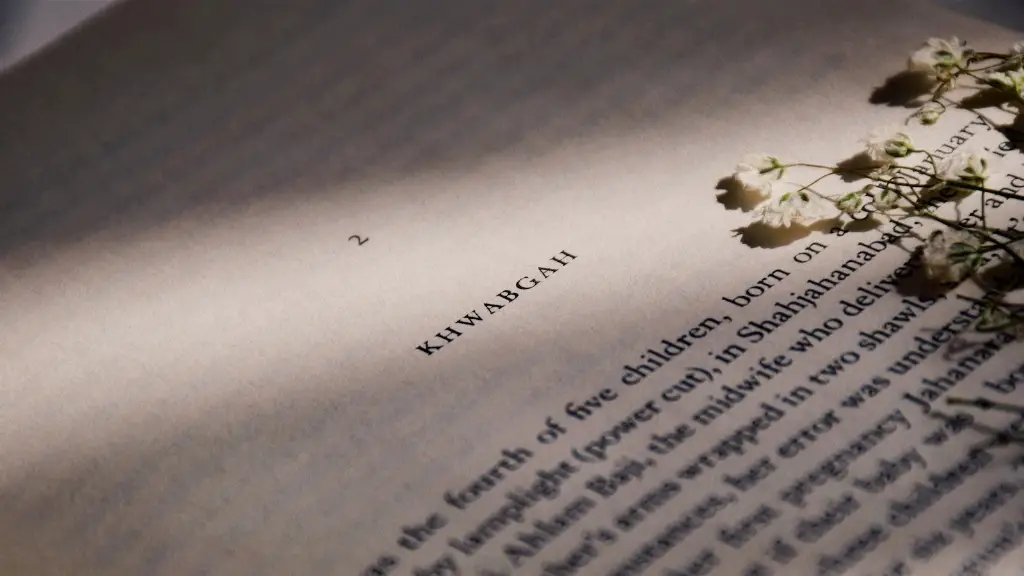Advantages of Spoken Poetry
Spoken poetry can provide a unique form of expression that combines the power of words and sounds to open a fascinating creative space. Unlike traditional written literature, it is not confined to a prescribed form and structure and allows for improvisation and experimentation. Spoken poetry provides the opportunity for aural creativity and the development of new sounds, which can be immensely rewarding for the poet. With the right guidance, anyone can learn the art of spoken poetry and become an effective practitioner.
Getting Started
For beginners, the best way to get started making spoken poetry is to get some excellent examples of other spoken poets’ work and to analyse it. There are numerous recordings and performances of different spoken poets available online that can provide great resources for learning how to make spoken poetry. Listen to these recordings carefully, paying attention to the delivery, diction, rhythm, and the use of pauses and variations in volume. Once you have familiarised yourself with spoken poetry, consider the topic or theme you want your own poem to explore.
Crafting a Poem
Constructing a spoken poem requires you to marshal literary devices – such as metaphors and similes – to communicate your message. Begin by writing out your poem in the conventional way, but do not be too committed to your initial draft. As you start reading and interpreting the poem, consider other ways to embellish your work. Consider how repetition, pauses and changes in delivery could add layers of meaning and substance to your poem. Allow yourself to play with language. Be creative, take risks and dare to surprise your audience.
Practice and Prepare
It is essential to practice performing your poem aloud, especially when performing your work in front of an audience. Get used to the sound of your own voice and the way you communicate with your audience. Pay attention to your tone of voice, volume, and the use of pauses. When preparing to perform, be selective and cautious with the type of distractions you use and try to avoid overloading your spoken poem with sound and ‘noise’.
Performing a Poem
Performing spoken poetry in front of an audience requires both courage and skill. It is important to speak with assurance, as this will help to keep the audience engaged and interested in what you are saying. Make eye contact with your audience and allow for moments of silence. Public speaking can be challenging for many people, so it is important that you take time to emotionally prepare yourself and practice your poem ahead of time.
Overcoming Writer’s Block
Writer’s block is a common experience for poets or any artists, for that matter. The key to breaking through this obstacle is simply to keep writing, even if there are moments when no ideas or words come to mind. It is important to give yourself the space and freedom to explore and experiment with your craft. Reach out and collaborate with other spoken poets to learn how they approach their own creative process.
The Power of Poetry
Poetry, no matter the form, is an incredibly powerful art form. With spoken poetry, the creator has the opportunity to tell stories with the power of words and sounds. Spend time reflecting on your own story and influences and make the conscious effort to connect with your audience. If you are willing to work hard, it is possible to make your own unique contribution to the art of spoken poetry.
Exploring Performance
Spoken poetry is performance art as much as it is literature. As such, it requires a different approach to rehearsal and delivery than traditional poetry. Learn to express yourself naturally and think about the ways you like to engage your audience. Your performance should be an extension of your personal story, so take the time to develop your own unique style and aesthetic.
Making Use of Technology
There are plenty of ways to make use of modern technology when writing and performing spoken poetry. By using a microphone, you can easily record and store your poems, allowing you to play them back and listen to them again. This makes it simpler to identify errors or areas which could use additional work. Digital audio applications, such as Pro Tools and Garage Band, can be used to create soundscapes and musical accompaniments, and many of these are available for free.
Encouragement and Support
No artist should work alone. It is important to reach out and collaborate with other spoken poets, especially when you are starting out. Spend time discussing ideas and approaches to strengthen your skills and build your confidence. Bouncing ideas off of each other can also be an invaluable resource for gaining insight. Joining a spoken word group or a poetry circle can offer invaluable emotional and constructive support.
Explore Your Options
Spoken poetry can provide an opportunity to explore and experiment with different genres and styles. Try out different types of poetry- writing haikus and sonnets, exploring spoken word and slam, even dabbling in experimental sound works and abstract performances. Branch out and take advantage of all the different forms of spoken word poetry. Do not shy away from challenging yourself and pushing the boundaries of what is possible.


